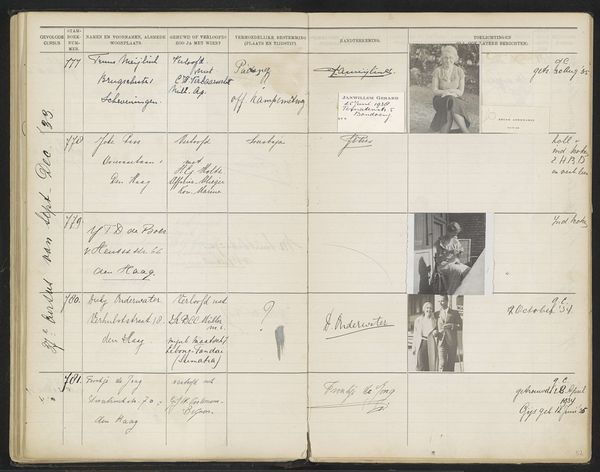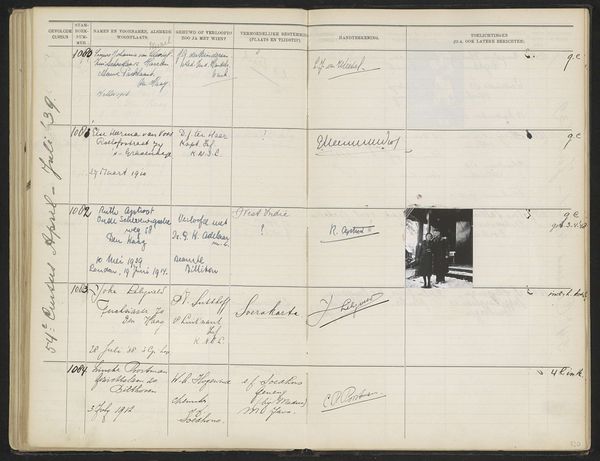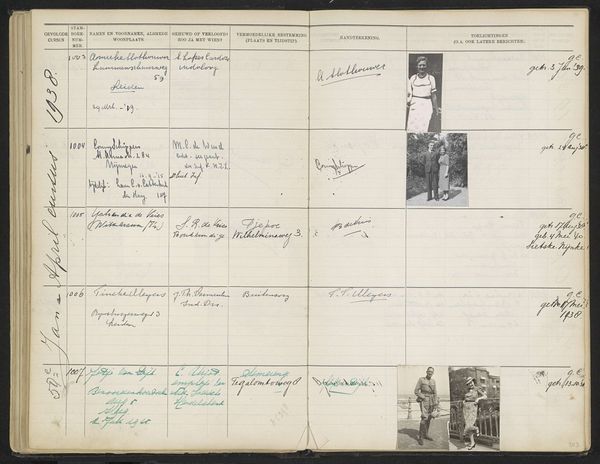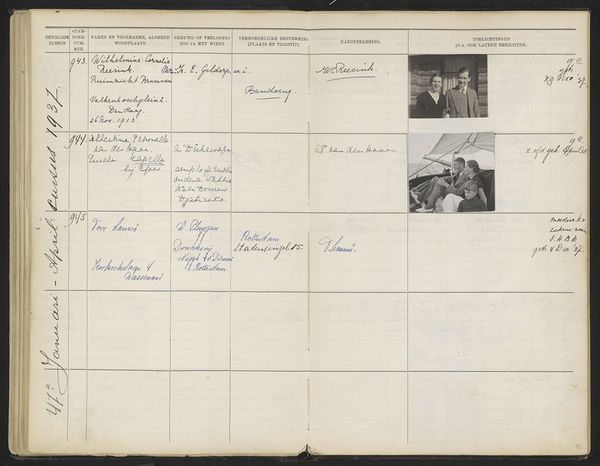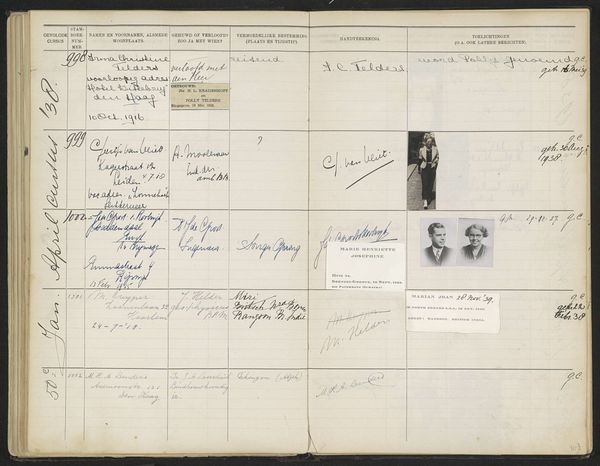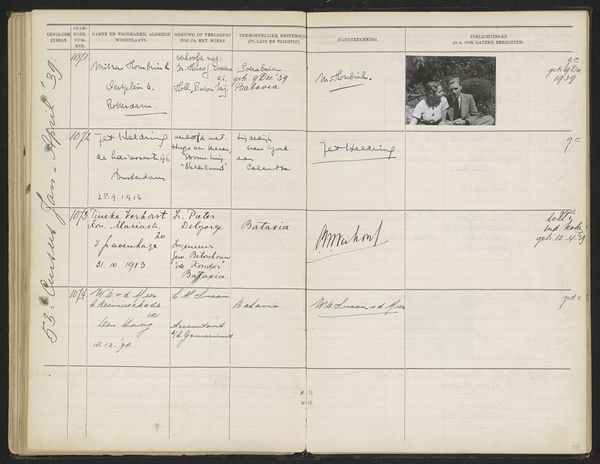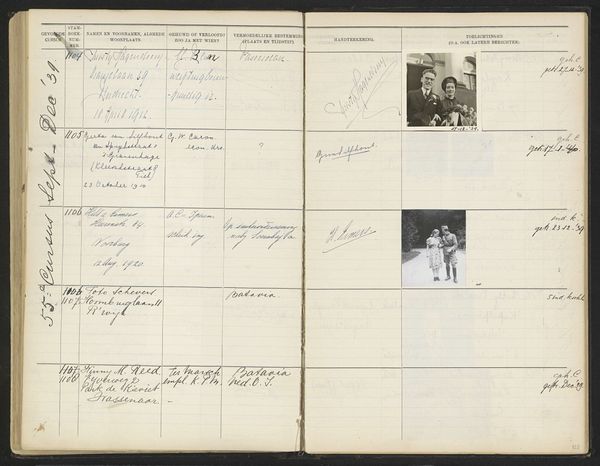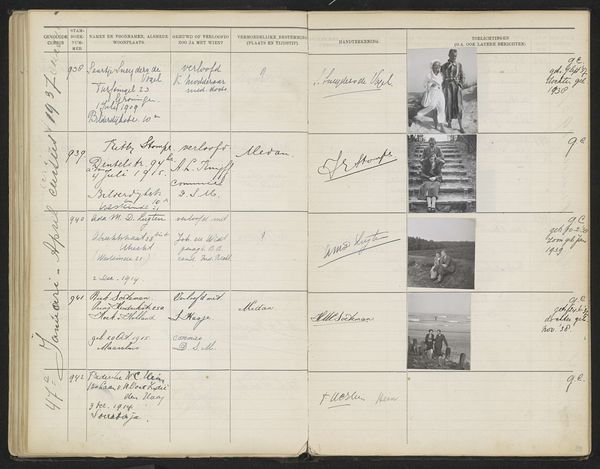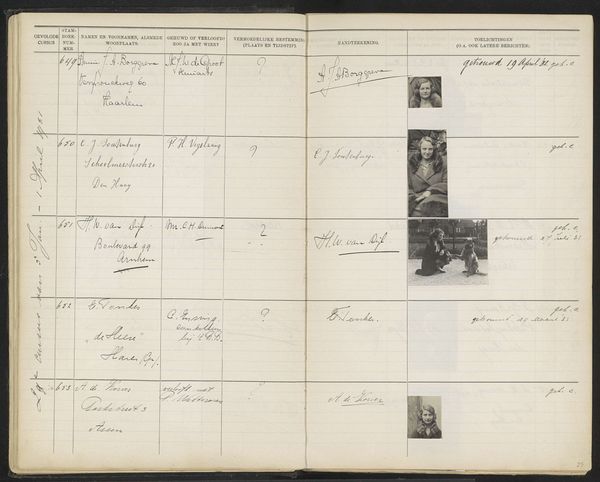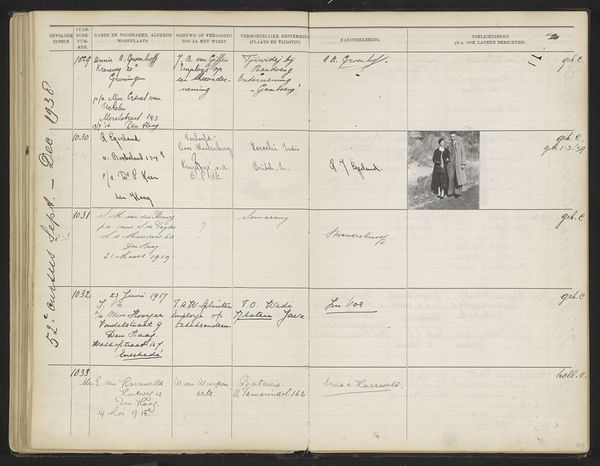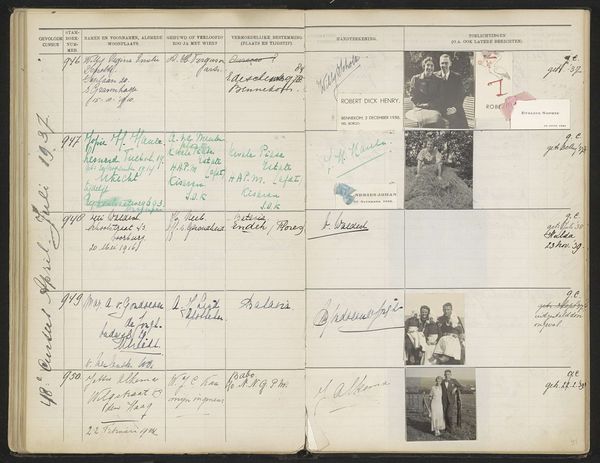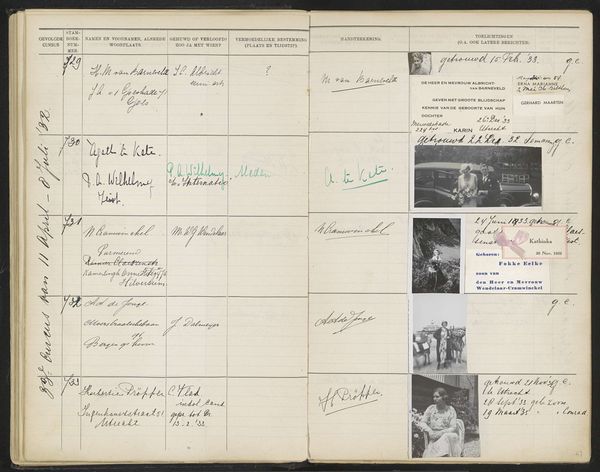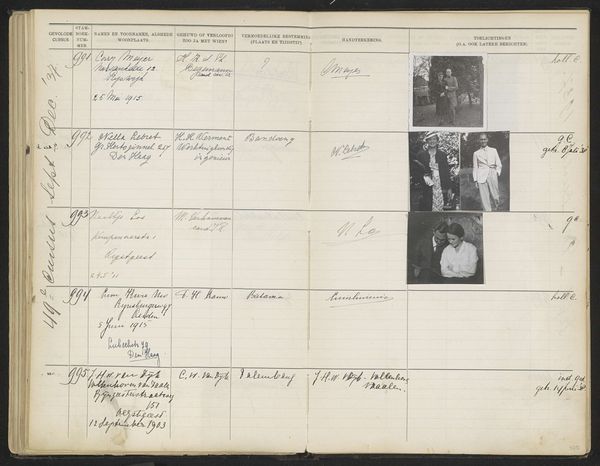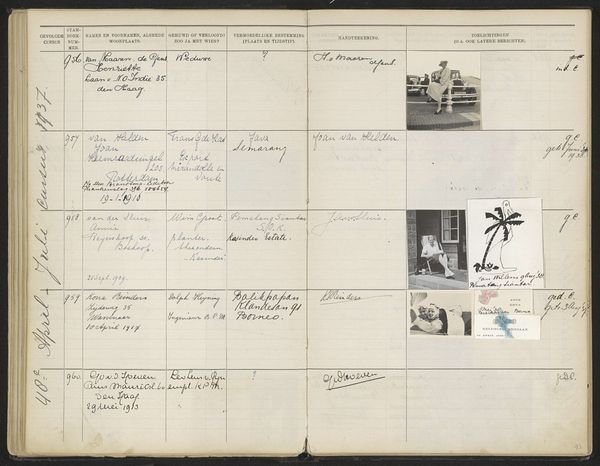
Blad 110 uit Stamboek van de leerlingen der Koloniale School voor Meisjes en Vrouwen te 's-Gravenhage deel II (1930-1949) Possibly 1938 - 1939
0:00
0:00
mixed-media, paper, photography
#
portrait
#
mixed-media
#
paper
#
photography
#
academic-art
Dimensions: height 337 mm, width 435 mm
Copyright: Rijks Museum: Open Domain
Editor: This mixed-media work on paper is a page, specifically leaf 110, from the registry of students at the Colonial School for Girls and Women in The Hague. It's dated around 1938-1939. It’s such a formal and ordered document, with handwritten details alongside small inserted photographs. There's something really striking about that juxtaposition. What kind of historical narrative can you read from this, using it as a portal to the past? Curator: What stands out to me is how this object presents a very particular, institutional perspective on women and their roles during a critical period. We're looking at a colonial school, suggesting an involvement in shaping the roles these women were to play in colonial structures, whether in the Netherlands or abroad. Editor: Right. I see that now. And each entry contains their marital status. Is this document reflecting the colonial role women played? Curator: Exactly. This registry is more than a simple list of names. It's a deliberate record-keeping exercise linked to societal expectations around women and marriage in that era. Note how marriage records take central space and how these documents often serve as a marker of identity and legitimacy. We need to question: what sort of knowledge was produced here and for what purposes? Editor: So, looking at this through a wider socio-political lens really illuminates what was at play here. Curator: Precisely. We're not just looking at a collection of student data, but at the social structures that gave this document significance, which further contextualizes gender roles, marriage and colonial participation. Editor: It’s amazing how a single page like this can open up these big historical conversations. I'll definitely remember to consider institutional agendas when analyzing historical records. Curator: And that art, in many forms, may serve a particular socio-political purpose.
Comments
No comments
Be the first to comment and join the conversation on the ultimate creative platform.
